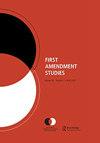Fighting back: Is defamation law a double-edged sword for #MeToo victims?
Q2 Social Sciences
引用次数: 1
Abstract
ABSTRACT During the past half-century, countless women have been victims of sexual harassment, groping, and rape. When the #MeToo Movement gained momentum in October 2017, women who had victimized began to speak out. If women who were victims of sexual predators had not originally reported being raped but came forward as part of the #MeToo movement two or three decades later and the perpetrators denied it (in essence, accusing the victims of lying), their only legal recourse has been to sue the sexual predators for defamation. The law of defamation is a double-edged sword, however, because if victims use social media platforms to “name and shame” the men who raped them, the perpetrators have also sued their alleged victims for libel. This discussion examines the effectiveness of turning to defamation law as a means of redressing grievances in #MeToo cases, and also applies critical legal theory to these cases. In other words, if there is pervasive structural inequity in the legal system, meaning that perpetrators are often wealthy and powerful men who can easily afford attorneys’ fees, can victims still prevail in court, or can wealthy and powerful perpetrators buy their victims’ silence with non-disclosure agreements?反击:诽谤法对#MeToo受害者来说是一把双刃剑吗?
在过去的半个世纪里,无数女性成为性骚扰、猥亵和强奸的受害者。2017年10月,#MeToo运动声势浩大,受害女性开始发声。如果遭受性侵犯的女性最初没有报告被强奸,而是在二三十年后作为#MeToo运动的一部分挺身而出,而施暴者否认了这一点(本质上是指责受害者撒谎),那么她们唯一的法律追索权就是起诉性侵犯者诽谤。然而,诽谤法是一把双刃剑,因为如果受害者利用社交媒体平台“点名羞辱”强奸她们的男性,施暴者也会以诽谤罪起诉所谓的受害者。本讨论探讨了将诽谤法作为#MeToo案件中纠正冤情的手段的有效性,并将批判性法律理论应用于这些案件。换句话说,如果法律体系中存在普遍的结构性不平等,即犯罪者通常是有钱有势的人,可以轻松支付律师费,那么受害者还能在法庭上获胜吗?或者有钱有势的犯罪者能通过保密协议让受害者保持沉默吗?
本文章由计算机程序翻译,如有差异,请以英文原文为准。
求助全文
约1分钟内获得全文
求助全文
来源期刊

First Amendment Studies
Social Sciences-Law
自引率
0.00%
发文量
0
期刊介绍:
First Amendment Studies publishes original scholarship on all aspects of free speech and embraces the full range of critical, historical, empirical, and descriptive methodologies. First Amendment Studies welcomes scholarship addressing areas including but not limited to: • doctrinal analysis of international and national free speech law and legislation • rhetorical analysis of cases and judicial rhetoric • theoretical and cultural issues related to free speech • the role of free speech in a wide variety of contexts (e.g., organizations, popular culture, traditional and new media).
 求助内容:
求助内容: 应助结果提醒方式:
应助结果提醒方式:


